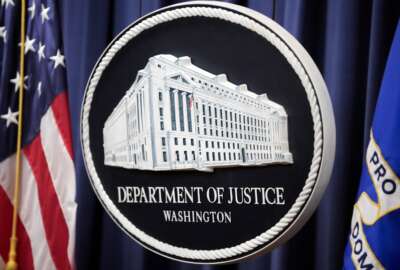VA reinstated 100 employees fired under widely challenged law, paid $134M to hundreds more
VA officials said only 3% of the 4,000 employees fired under the 2017 VA Accountability and Whistleblower Protection Act have returned to work.
The Department of Veterans Affairs reinstated more than 100 former employees it had fired under a widely challenged law that once made it easier to remove personnel accused of misconduct.
The department also paid about $134 million to 1,700 former VA employees who were fired during the Trump administration, under the 2017 VA Accountability and Whistleblower Protection Act.
The VA agreed to these actions, as part of a settlement it reached with the American Federation of Government Employees in July 2023.
News outlets widely reported the overall terms of the settlement last year. But specific details of the deal were first reported earlier this month by Fox News and the America First Policy Institute, based on documents obtained through Freedom of Information Act requests.
A VA spokesperson said in a statement that the department “has ensured that bad actors cannot return to work and saved taxpayers hundreds of millions of dollars.”
Department officials said only 3% of the 4,000 employees fired under the 2017 VA Accountability and Whistleblower Protection Act — about 120 individuals — have returned to work at the VA, and that no employee fired for grievous misconduct has been rehired.
“VA continues to hold every employee accountable to delivering the world-class care and benefits that veterans deserve — and when they fail to do so, we take swift and decisive action,” a VA spokesperson said.
VA officials said the department, under the Trump administration, failed to bargain with AFGE over the implementation of the 2017 law, violating provisions of its contract with the union.
The department defended its position in court between 2017 and 2023, but federal courts and arbitrators repeatedly ordered the VA to reinstate employees it fired under the 2017 legislation.
“The previous administration’s implementation of the 2017 law was repeatedly struck down by the courts, putting VA at risk of having to rehire individuals who committed patient abuse, harassment, and criminal activity — and putting taxpayers on the hook for more than $1 billion,” a VA spokesperson said.
Federal judges and the Merit Systems Protection Board also blocked many of the VA Accountability and Whistleblower Protection Act’s provisions from covering a majority of the VA’s workforce.
VA leaders decided that, starting in April 2023, the department would no longer use authorities in the legislation to fast-track the firing of employees accused of misconduct.
VA Secretary Denis McDonough told reporters in March 2023 that the legislation didn’t help the department fire poor performers, and that the department has the tools it needs to hold employees accountable.
“To be honest … [it] wasn’t really helping us necessarily manage our workforce, as much as it was getting us in front of federal judges and in front of administrative bodies,” McDonough said. “So we just want to make sure that we’re exercising the authorities that we do have.”
In a July 2023 settlement, AFGE and the VA agreed to let thousands of former employees, fired for minor offenses under the VA Accountability and Whistleblower Protection Act, choose between reinstatement or compensation.
As part of the settlement, AFGE and the VA agreed to uphold the firings of hundreds of other former VA employees found to have engaged in grievous misconduct.
Robert Wilkie, a former VA secretary under the Trump administration, now a distinguished fellow of AFPI’s Center for American Security, said the VA’s compensation and reinstatement of former employees has “let down American veterans and taxpayers.”
“Those fired for mistreating American veterans should not even be allowed near the VA, much less reinstated,” Wilkie said in a statement.
VA leaders under the Biden administration say they have the necessary tools to discipline and remove employees accused of misconduct.
Members of the House and Senate VA committees, however, have led bills during this session of Congress that would change how the department deals with poor-performing employees.
A bipartisan group of senators last year introduced the 2023 Leadership, Engagement, Accountability, and Development (LEAD) Act.
The bill would standardize the way the VA builds a case against employees who face allegations of misconduct or poor performance, and train the entire VA workforce on the ins and outs of the process.
Senate VA Committee Chairman Jon Tester (D-Mont.) introduced the legislation last year, along with Ranking Member Jerry Moran (R-Kan.) and Sen. Mike Rounds (R-S.D.).
“While VA has the ability and authority to remove bad actors today, there can be delays and reductions in penalties largely due to inconsistent processes and paperwork shortcomings,” the senators wrote in a summary of the bill.
The LEAD Act also calls on the VA to keep its medical facilities staffed up when employees under investigation are pulled away from their frontline medical positions.
VA’s top HR officials supported core elements of the LEAD Act. But they rejected efforts by House lawmakers to let the department once again fast-track the firing of employees, using a lower standard of evidence to prove misconduct or poor performance.
Department officials said record-high trust scores from veterans are a sign the VA is holding employees accountable.
Meanwhile, the VA announced it delivered more health care and benefits to more veterans than ever before, breaking previous records.
The department it provided 127.5 million health care appointments to veterans in fiscal 2024 — a 6% increase over the previous year.
The VA also delivered $187 billion in benefits to 6.7 million veterans and survivors in FY 2024. It processed more than 2.5 million disability benefit claims — a 27% increase over last year’s record.
McDonough said in a speech Tuesday that, “by nearly every metric, the VA is smashing records we had set last year.”
“It’s not just more care. It’s better world-class care, and it’s better health outcomes for veterans than in the private sector. It’s not just more benefits, it’s faster, more accessible benefits we’re delivering by meeting vets where they are, rather than expecting them to come to us,” McDonough said at the National Press Club.
The VA is seeing this record workload under the PACT Act. The 2022 law expands health care and benefits for veterans exposed to toxic substances during their military service.
More than 796,000 veterans have enrolled in VA health care since the PACT Act was signed into law. That’s a nearly 37% increase, compared to the approximately two-year period before the PACT Act was signed into law.
Copyright © 2025 Federal News Network. All rights reserved. This website is not intended for users located within the European Economic Area.
Jory Heckman is a reporter at Federal News Network covering U.S. Postal Service, IRS, big data and technology issues.
Follow @jheckmanWFED






